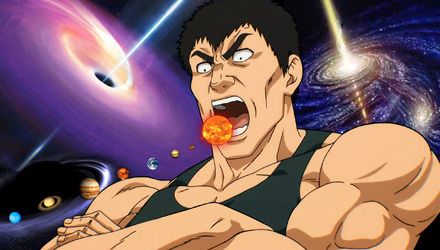These were all good articles, Wes. I think most of your points were fairly salient.
Right, well, in all of the games the majority of the main characters are young men and women, especially in the PS1 era. But they're meant to be extraordinary men and women who recognize and overcome their personal demons and personality flaws for the greater good. Squall learns that existing as an emotionless, isolated automaton robs one of purposefulness - he becomes a leader by realizing he must build relationships, maintain them, protect them and earn trust as opposed to commanding it. He grows and changes. He asserts himself as an opposite of Seifer because he forgoes desire for power and glory when he might have chosen that path as well. He comes to terms with his feelings of abandonment and learns to let people into his life. It's a powerful character change, it's a powerful story of young adulthood.Originally Posted by Locky
Rinoa is static. Flighty, beautiful, dreamy. She is something to chase and obtain. She doesn't learn, she doesn't grow. Her beliefs, outlook, actions, behaviors and character remain the same. Not because she's perfect, but because she is not interested in personal growth and for the plot of the game, she has no need to. Female characters in FFVIII are used as flat foils for their male counterparts. It's this reason, not her age appropriate behavior, is why the handling of her character is sexist.
Agree completely. Aerith knew the slums better than Cloud, it's a good thing she saved him! ...Wait. What? Oh. It would make more sense for Aerith to lead Cloud out of danger than it would for him to lead and protect her.Originally Posted by Formalhaut
So then are we to ignore the storyline establishing these romantic connections? Cloud's false memories of love for Aerith that bring him closer to her or his night with Tifa under the airship? Or how about the womens' interactions with each other that establish jealousy and fear of losing Cloud to the other? I think Aerith and Tifa represent two different feminine tropes, Tifa is maternal and serves as a guide to Cloud, this is a force he needs in his life. Which is why she is willing to let the entire world go to hell just to save him. Aerith represents romantic, young, foolish love. She wants to give Cloud the world. Both suffer from the aforementioned lack of character development, but not nearly so much as the female leads in FFVIII, no, but they still exist solely to develop the male lead. Which sucks.Originally Posted by Bolivar
Hmm, not to inflate his ego or anything, but Wes is pretty egalitarian. As a feminist I have a different interpretation than either of you on the love triangle and I don't think I'm framing the storyline in a way that favors my argument (but of course I wouldn't think that as it's my argument) but I think there's a significant amount of evidence in characterization that defines those roles for the female leads.The fact that you projected your own reductionist and sexist interpretation onto the relationship is another huge red flag.
Maybe this was unintentional, but this is the modern day equivalent of "The White Man's Burden": righteous males whose patriarchal attempts to champion defenseless women by exposing wrongdoers only reveals their own condescending attitudes and sometimes comfort issues with women who are firmly in charge of their own sexuality.
I agree, Tifa is a strong-willed character with more emotional depth than Cloud. Which is why she's his mother, she cares for him, guides him, protects him, will give up anything to save him. Not all stereotypes are "bad" in the sense that they portray the subject in a negative light. They're bad because they pigeon-hole the subject into a neat little package they can't grow out of.You're also confusing sexism with artistic exploitation. Sexism is the belief in the superiority of one's gender. Yes, Tifa's outfit and the slapping scene are incredibly gratuitous, but that doesn't stop her from resolving conflicts and even doing something the main character cannot, when she exhibits emotional superiority over Cloud during his consciousness story sequence.
Also, I was pissed that my badass, bar-brawler who beats things to death with her fists got into a prisspot slapfight with another woman. That was less conflict resolution and more distracting the badguy.








 Reply With Quote
Reply With Quote






 )
)
 And yes, I do consider myself a feminist.
And yes, I do consider myself a feminist. 

